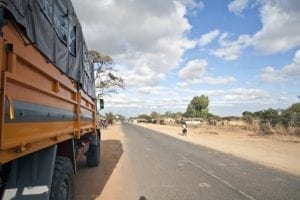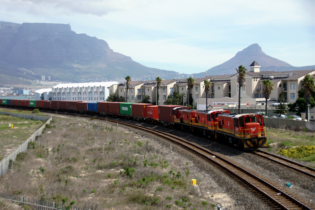FESARTA is continuing to meet and engage with various road transport stakeholders – most recently in Namibia and Kenya.
The value of travelling the length and breadth of the continent cannot be underestimated as we foster relationships and build our network of contacts. One of my stated objectives is to maintain and strengthen existing relationships with organisations such as the tripartite, sub-Saharan Africa Transport Policy Programme – now known as the Africa Transport Policy Programme (SSATP) – International Road Transport Union (of which FESARTA is a member), and many others. We are also engaging with initiatives like Borderless, which is a multilateral partnership of private and public sector stakeholders that are working to increase trade in West Africa, and eliminate barriers to trade in that region. FESARTA still represents the road transport truckers at a regional level – SADC, COMESA, and EAC – and has been the representative through the national road transport associations. These road transport associations exist to represent truckers at a national level; they do all the lobbying and provide the services to the truckers. They are also tasked with getting their respective governments to ensure that truckers are given the best opportunities to operate successfully along their chosen transport routes.The SSATP has been in place for many years, and it brings together the various regional economic communities in what used to be just sub-Saharan Africa (now the whole of Africa). It brings regional economic communities (RECs) together and, through the RECs, comes up with policies and projects to improve the efficiency of road transport. Through that process, policies cascade down to the various governments.
FESARTA is always hopeful that transport efficiencies will be improved. The biggest problem the transport industry faces from a regional perspective is the mindset of the numerous authorities in each of the governments. They do not always fully grasp the importance that trade facilitation has for intraregional trade. For Africa to be globally competitive, it needs to develop successful intraregional trade. Without that, it is going to continue to lag behind. This is where the SSATP comes in, with the RECs, to try to change that mindset and ensure that trade facilitation gets ingrained in the minds of all the authorities along the corridors. Through the RECs, FESARTA constantly works on a range of initiatives. It sits in at various forums in order to harmonise and standardise regional recommendations (see the article on vehicle load harmonisation in this issue – Ed.). Successes have been achieved on local issues – e.g. the removal of the 40 km/h restriction imposed on truckers in the DRC; Tanzania used to charge Kenyan truckers $200 to drive into their country, which is no longer the case; and Mozambique now permits the operation of 56 tonne GCM truck and trailer combinations within its borders, which is up from the 48 tonne GCM previously legislated. While all of these things may not be directly attributable to FESARTA, FESARTA is part of the process that achieves these types of successes.





